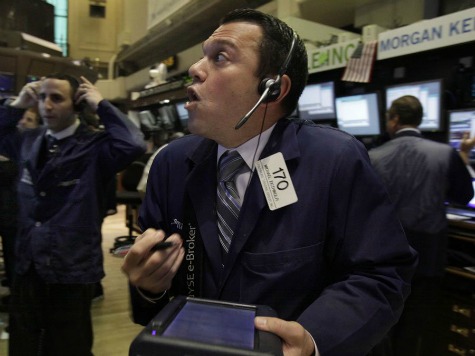Most Keynesian economists do not want to admit that we are in another depression. They find the word painful.
They find it painful because it contradicts the idea that Keynesian economic ideas have ended depressions forever. It also contradicts the idea that the massive and continuing Keynesian stimulus applied by world governments since 2008 has worked. For this and other reasons, euphemisms such as the Great Recession have been embraced not only by Keynesian economists but by their allies in government and in the mainstream press.
I argued that we were in a depression in a January article and again in April. Now Brad DeLong, one of the most prestigious Keynesians, a professor at Berkeley and former deputy assistant secretary of the Treasury under Clinton, says that he agrees. It really is a depression.
DeLong doesn’t blame Keynesianism; that would be too much to expect. But he does call the thing by its right name, which is a major departure from the usual Keynesian style.
These are, after all, the people who call the government creating money out of thin air “quantitative easing,” “bond buying,” and the like, all of which are parroted by the press. When Keynes did this, he was often being impish, as when he called newly-created money “green cheese,” echoing the old nursery nonsense that “the moon is made of green cheese.” His acolytes have adopted the style of dissimulation–but without the slightest trace of a sense of humor.
Although we are in a depression, it is not a depression for everyone, as is by now well known. Even so, the full hit on the middle class and the poor relative to the affluent is not adequately understood. Consider these figures from Larry Lindsey, who served Bush 43 as chief economist at the beginning of the first term, only to be booted from the White House for too much truth telling:
U.S. Household Net Worth 2007- 2013
Top 1% Up 1.9%
Next 9 % Up 3.4%
Next 15% Down 0.5%
Next 25% Down 16.7%
Bottom 50% Down 44.2%
None of the economic statistics we get from the government are reliable. Inflation is understated. Economic growth is overstated. Unemployment is understated. But this chart of net worth is about as reliable as we can expect to get.
It tells the story of a middle class in the process of being destroyed and of poor people who will never be able to get into it. It is also noteworthy that the nine percent below the top one percent have done best of all. Although a great many government employee households are in the top one percent, a larger number are in the next nine percent.
Click here to read the rest of the article at AgainstCronyCapitalism.org.
Hunter Lewis is co-founder of AgainstCronyCapitalism.org, co-founder and former CEO of Cambridge Associates, a global investment firm, and author of two recent books, Free Prices Now!, about the Federal Reserve, and Crony Capitalism in America 2008-12.

COMMENTS
Please let us know if you're having issues with commenting.